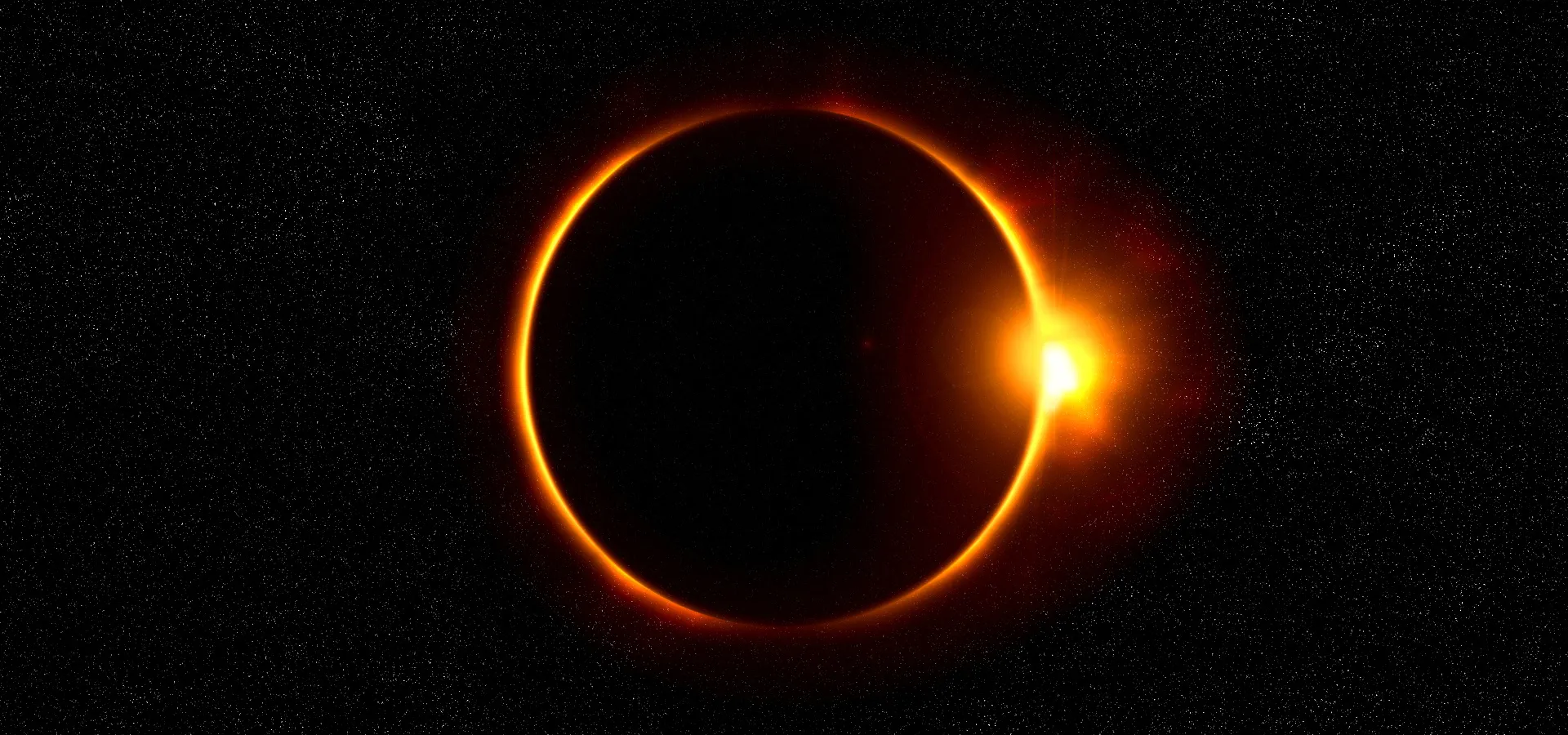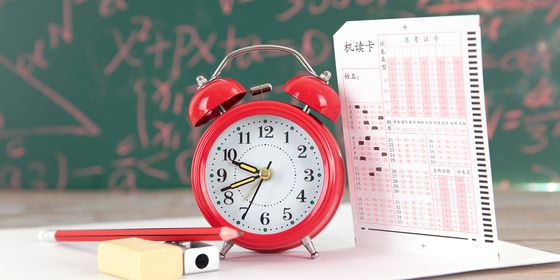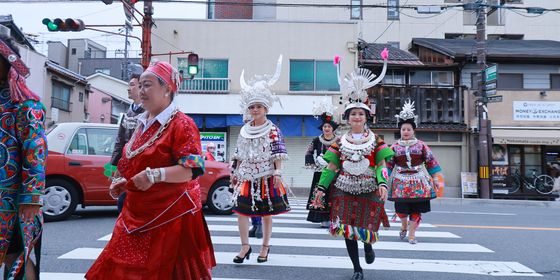From “sun-devouring dogs” to emperors’ conduct, ancient Chinese blamed solar eclipses on a variety of causes
“The celestial dog is eating the sun!” ancient Chinese villagers would probably cry, if they saw the sun disappearing behind a shadow.
Whereas millions enjoyed a total solar eclipse from coast-to-coast in the United States on Monday, in ancient China, the event would have had entire villages mobilizing to shout, light firecrackers, sound the gong, and beat the drum—in all, make as much noise as possible to scare away the evil sun-devouring beast.
This belief gave rise to the Chinese name for a solar eclipse, 日食 (rìshí, lit. “sun devoured”). The same “celestial dog” (天狗) was blamed for lunar eclipse, or 月食 (yuèshí, lit. “moon devoured”).
Folk superstitions aside, Chinese scholars appears to have figured out how to predict a solar eclipse early on. They are referenced in an event recorded in the Book of Documents, or Shangshu (《尚书》), a Confucian classic believed to have been written in the 5th century BCE, : Under the rule of a king named Zhongkang in the pre-historic Xia dynasty (believed to have existed between the 21st and 17th centuries BCE), a high-ranking astronomical officer named Yihe abandoned his sky-monitoring duties and retreated to his private manor to enjoy worldly pleasures, until he failed to report one, leading to much panic when it happened. A general was sent to execute him for his negligence.
Because of the lack of historical records in this early period, no one is sure when this particular eclipse took place. But it has been an intriguing mystery for historians and astronomers throughout Chinese history, including Johann Adam Schall von Bell, the Jesuit missionary who worked as an astronomer for the Qing emperor. Apart from writing two papers on solar eclipses during his time in China, Schall von Bell also correctly predicted a solar eclipse that took place on the first day of the eighth lunar month in 1644.
In another case, a suspected solar eclipse in the morning was recorded in the Bamboo Annals (《竹书纪年》), a historical record believed to date back to the 3rd century BCE: “In the first year of King Yi (of Zhou), dawn broke twice in the city of Zheng.” Many later scholars believed this passage referred to a total solar eclipse that took place in the morning. In a recent full solar eclipse in 1997, observers in Xinjiang in western China said the experience was exactly what the ancient text described.
The Xia-Shang-Zhou Chronology Project, a 1996 state-commissioned project to determine the time frame and location of China’s three oldest recorded dynasties, this eclipse was cited as an important piece of potential evidence to dating these historical periods. However, there have been criticisms from scholars over assessing the description in these texts—they could, after all, be false, metaphorical, or even an ancient clerical error.
In all, Chinese astronomers have kept a record of solar eclipses for the past 4,000 years, adding up to over 1,000 cases, most of which were later determined to be comprehensive and accurate. Besides serving as cross-references for historians of dates and locations of historical events, these records are handy for studying changes in the Earth’s rotation in the past millennia.
Recording and predicting solar eclipse were important since astronomical events were closely associated with state affairs in ancient China, especially since the second century BCE, when scholar Dong Zhongshu (董仲舒) developed the notion of “interactions between heavens and humankind” (天人感应) to determine legitimacy of a monarch. A legitimate emperor was said to be ordained by heaven as its representative.
Under this doctrine, any natural disaster or rare natural phenomenon like the solar eclipse were seen as warnings from the above for the ruler to mend his ways, or else lose the right to govern the realm. In 178 BCE, Emperor Wen of the Han dynasty started the tradition of the emperor issuing a public self-criticism whenever a solar eclipse strikes, taking responsibility of the “omen” and promising to mend his moral or administrative wrongdoings. In his first self-criticism, Emperor Wen blamed himself for not have enough virtue and encouraged his officials to be more critical of his conduct.
The most recent total eclipse visible in China took place on July 22, 2009, but was only observable in the middle and lower reaches of the Yangtze River. The next will be a brief one, in 2034; only those in the far western regions, Xinjiang and Tibet, will be able to catch a glimpse before sunset.
But don’t give up hope: In 2035, the very next year, another total solar eclipse will take place as the shadow of the moon moves across the vast plains of northern China; it will be much like the great solar eclipse in the US, and Beijing is right in its path. Astronomers say it will be a once-in-400-year event. Let’s just hope by then, the city air will be clean enough for ideal observation.












